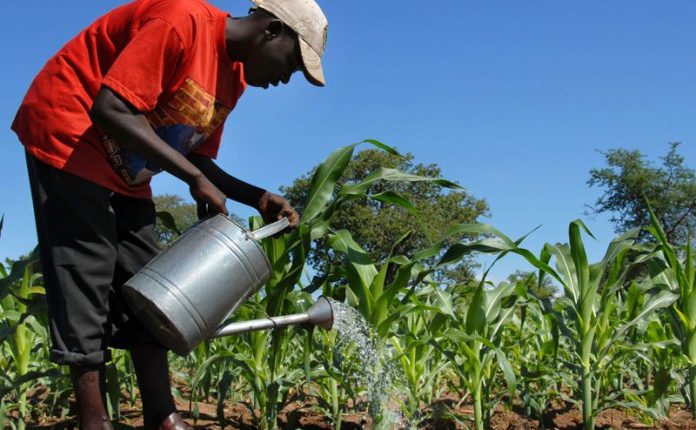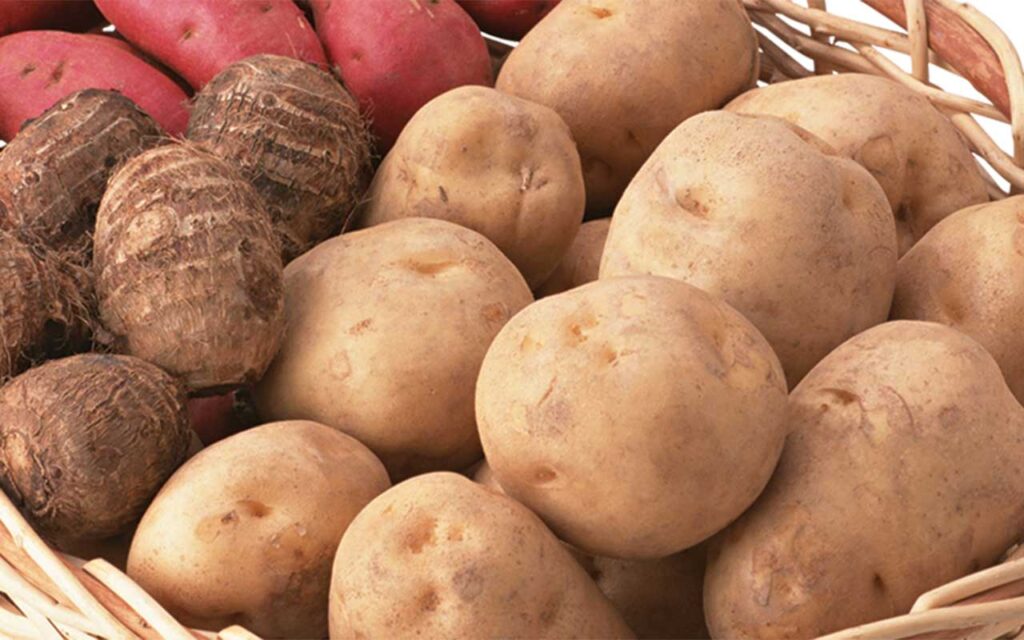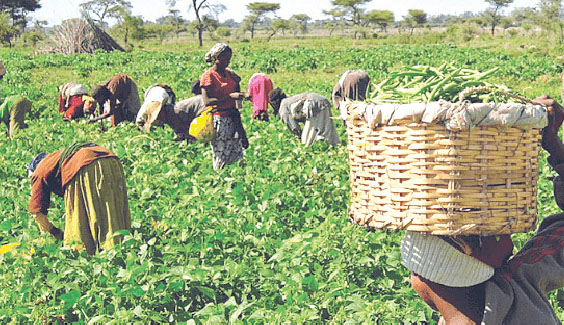
In order to achieve all year-round farming in Nigeria, one of the smartest methods to embrace by farmers is the irrigation system. It enhances agricultural growth and maintains the landscape during the periods of less average rainfall.
Irrigation is the process of applying water to the crops artificially to fulfill their water requirements. Nutrients may also be provided to the crops through irrigation.
Among the various types of irrigation systems, sector players described drip irrigation as the best method, in terms of efficiency, preservation of soil structure and safeguarding the fast, nutritious growth of crops.
Drip irrigation or trickle irrigation is a type of micro-irrigation system that has the potential to save water and nutrients by allowing water to drip. It applies water and nutrients frequently and in small doses, ensuring optimal growing conditions that help produce the highest yields possible.
But one of the disadvantages of this method is that it is very expensive and out of reach of smallholder farmers, who form the bulk of farmers in the country. Several researches have been made in the past, especially by farmers to get less expensive, but efficient alternatives, which have actually served the purpose, depending on the area and type of crops cultivated.
The recent innovation is the drip irrigation project using plastic bottles – Plastic bottles irrigation system, developed by a postgraduate student (M.Sc) of the Ahmadu Bello University (ABU), Zaria, Kaduna State, Habeeb Adigun, as part of his final year project.
The system comprises of the PVC pipes, rubber hose as siphon and used plastic bottles. The PVC pipes and the rubber hose are locally available in the market at cheaper prices, while the plastic bottles are waste materials generated in homes, restaurant and offices.
The fact that they come at little or no cost makes this system cheaper, when compared with conventional drip or sprinkler systems. The project supervisor, Prof M. K. Othman, a Professor of Irrigation Engineering in the Department of Agric and Bioresource Engineering, ABU, who is the former Executive Director of NAERLS, said the research results show the viability of the system as a good complement to conventional irrigation systems and rain-fed farming.
“The system affords the urban and semi urban dwellers the opportunity to practice irrigation farming that is efficient in water management and at little cost. This will encourage more gardening and backyard farming; hence more food will be produced.
“The system is affordable, since the major component is the used plastic bottles that can be sourced locally at little or no cost. Compared with conventional drip with expensive emitters, this system is affordable.
“It is still at infant stage, still at researchers’ field, not yet packaged for adoption but will soon come out for promotion to the public. However, the system has been tested and it worked very well compared with conventional drip system that is very expensive beyond the affordability of smallholder farmers. This could be attributed to the small-scale applicability. However, research can be commissioned to scale it up to a medium farm size application. And we are ready to upscale it.”
Prof. Othman said the innovation was necessitated by the need to have a viable alternative micro irrigation system that manages scarce water resources efficiently, reduced cost of components part, at the same time putting spent plastic bottles to productive use. “In Nigeria, water is very essential to the household as many townships water supplies have failed and many rural areas, people trekked for many kilometers to fetch water for their domestic consumption. So, this system is very handy.
“The system is not an alternative to the large scale surface irrigation system. Rather, it is a low cost alternative to the conventional drip system at micro to medium scale irrigation level.
“My colleague, Prof Henry Igbadu and I, with our student, Habeeb Adigun have been working to perfect it and our research results show us the viability of the system as a good complement to conventional irrigation systems and rain-fed farming. It our hope that the appropriate authorities will take advantage of our preliminary findings and provide support for its upscaling.”
But an Agriculturist, who is the former Chairman, Lagos Chamber of Commerce and Industry (LCCI) – Agric, Mr. Wale Oyekoya, said the plastic bottle irrigation system couldn’t be used on a large scale farming, as it is time consuming, considering the number of bottles that will be used.
He added that the heat supplied into the bottle water could suffocate and harm the crops. Oyekoya said: “Plastic bottles irrigation system has been around for a while and it’s effective on a small scale farming. The important thing in any irrigation system is the supply of water to the plants either the natural or conventional way. Drip irrigation is still the best though expensive, but it can cover large area of farming.”
He said the president-elect, Asiwaju Bola Tinubu and all the governors-elect need to look into the sector carefully, especially with the irrigation system, which will help farmers to farm all year-round.
“Agric sector needs to be rejuvenated to curb food scarcity and high price of foodstuffs. I have seen our governments both the federal and state engaging wrong people as minister or commissioners, instead of real farmers with experience and passion to turn the sector around. Engaging practical farmers is more important in the sector than classroom teachers or politicians that have no business with the sector,” he said.





